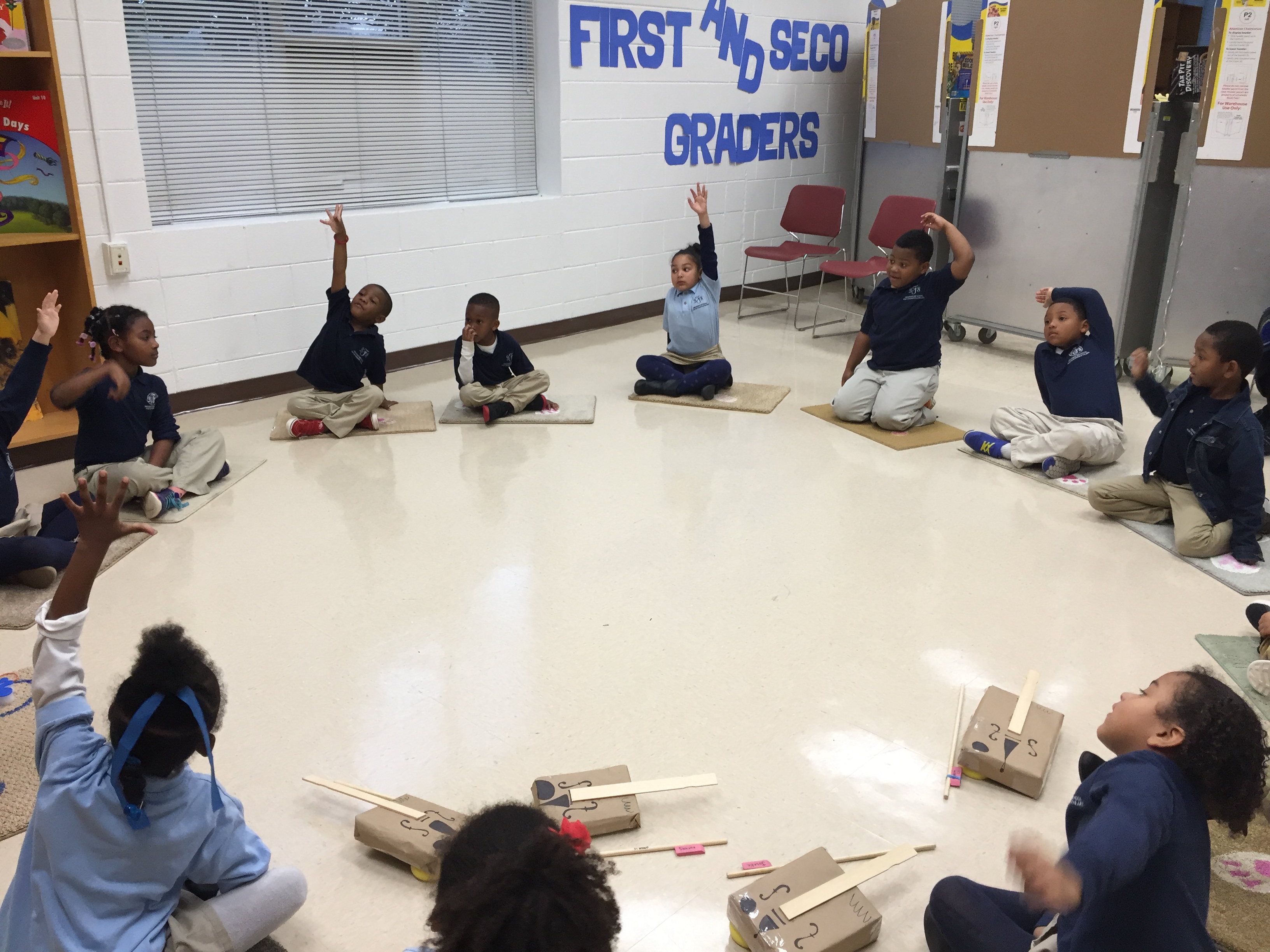
By LaShawn Hudson
While most boys his age spend their time playing video games or bopping to the latest hits from Bruno Mars or Drake, six-year-old Amauri Smith prefers to listen to Beethoven.
And when he’s not listening to classical music, the first-grader enjoys playing it on his custom-fitted violin.
“I treat my violin like a baby,” says Smith, who lives in the Beatties Ford Road corridor. “I love to listen to Beethoven, because you can hear the violin and the piano playing in the background.”
Smith was first introduced to classical music at school. He is one of 30 plus students taking Suzuki violin lessons at Friendship Day School (FDS) for the Sciences and the Arts in west Charlotte. The school was birthed from the success of Friendship Missionary Baptist Church’s highly-acclaimed eight-week summer Y.O.U. Program. Linda Comer and Margaret Dancy helped establish the Suzuki violin program at FDS in September 2017, after reviewing the far-reaching benefits of studying music.
“The study of music teaches focus, concentration and attention,” says Dancy, a member of the church’s education commission and the chairwoman for the Arts Advisory Council that advises FDS. Comer heads the school. Both women say the violin program is unique, because it complements the school’s rigorous arts and sciences program and promotes parent engagement. The cost of violin lessons is included in tuition.
“It’s a part of our school’s philosophy and it’s embedded in our curriculum,” explains Dancy. “Every single child that’s enrolled in our school has to take the violin lessons.”
The school uses the Suzuki method, which dates back to the 20th century and teaches young children to play music through repetition, similar to the way in which language is learned. The founder of the method, Japanese violinist Dr. Shinichi Suzuki, also believed that all children could learn music if they had a positive learning environment and practiced playing their instrument daily with parental support.
Dancy says students have responded well to the program, and their musical skills are blossoming, too. Adds Dancy: “The philosophy of the Suzuki violin is joy. If the children are participating in the violin instruction and it’s a joyful experience for them, they will likely continue to play.”
Smith’s great-great aunt, Angela Rivers, says she’s noticed positive changes in her nephew since he’s been in the private school and a part of the program.
“He is reading, He’s adding, He’s using his imagination,” says Rivers. “The level of confidence that he has from playing Suzuki violin is amazing.”
FDS has two grade levels,: kindergarten and first grade, but Comer says the school will add an additional grade level every year, as more students enroll.
Comer says the violin program has helped students become more well-rounded and it is fortifying their educational experience in meaningful, impactful ways.
“When children come through the door, I look at the brilliance they bring to the table,” she says. “They come in bright, with confidence, and they are brilliant in many ways. And it’s our job as educators to continue to build upon that.”
She says she will continue to work with other staff members, the education commission and the school’s board of directors to figure out ways to strengthen the music program at the school.
“At some point, I’d like for us to offer additional string instruments,” says Comer. “I’d like to see our students play the cello, the viola and the bass.”
Students currently enrolled in the violin program get to perform for live audiences at their winter and spring recitals.
As for Smith, he aspires to become a piano teacher when he grows up. In the meantime, he says he’s content with learning the fundamentals of the violin.
“Playing the violin makes me happy,” he says. “I think it’s important for all kids and adults to do it.”
